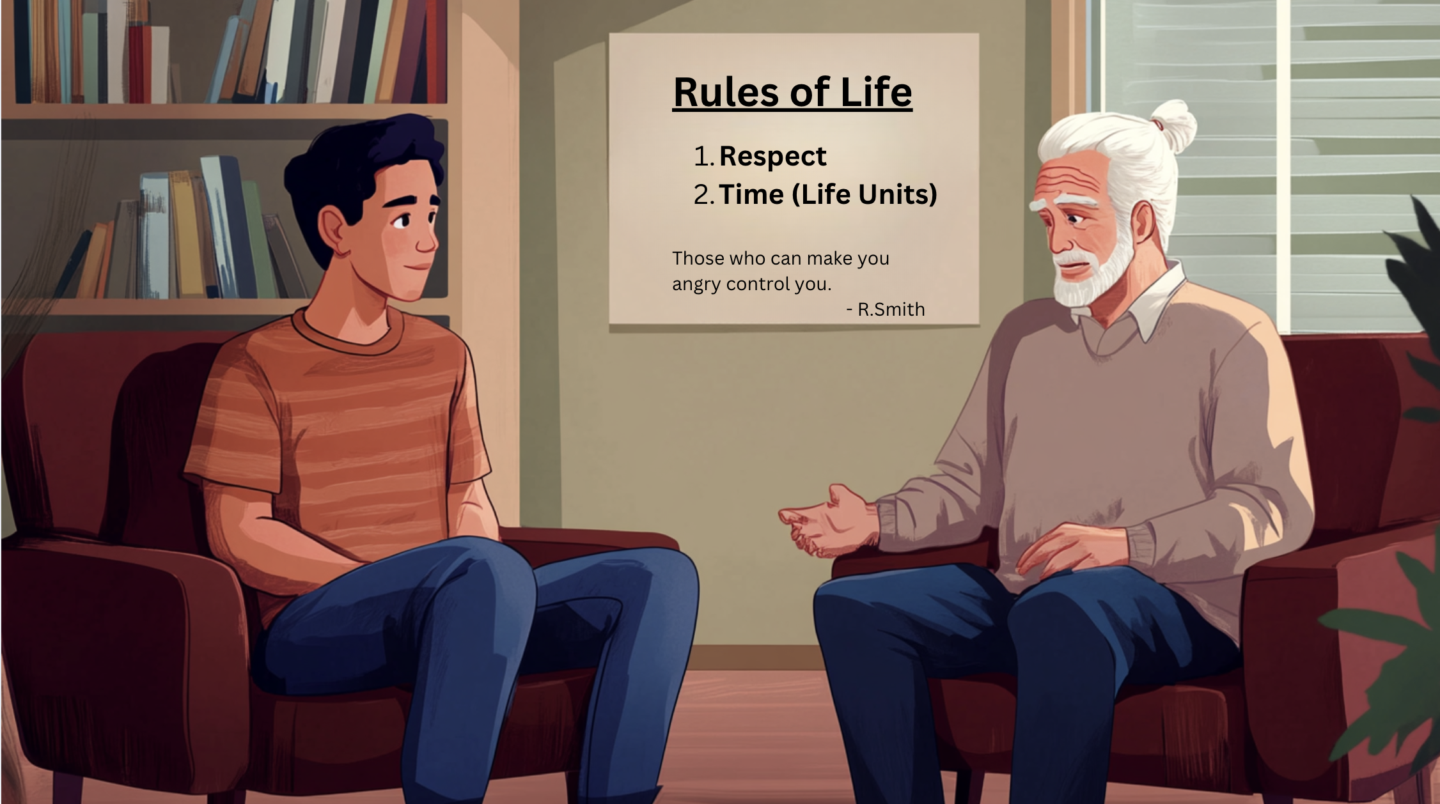Peter Kim
The Founder of Move Your Blood
Early Life: Struggles and Challenges
Peter Kim - Kinesiology Bsc. was born in 1992 to immigrant parents who moved from South Korea to Canada just three years before his birth. His father, struggling to make ends meet, took a job picking worms, while his mother worked at a Korean bank. Growing up in a household constantly dealing with financial strain, Peter was acutely aware of the tension that existed between his parents. As the middle child in a family of three, Peter often found himself in the role of mediator, caught between the silent struggles of his parents and his own emotional turmoil.
By the time he reached his teenage years, Peter’s self-esteem was heavily impacted by the constant financial pressure in his household. He was often teased for being overweight, earning him the nickname “Tubby” in elementary school. As he entered high school, his desire for acceptance and approval grew stronger. By Grade 12, Peter had a singular goal: to get a prom date. He believed that getting abs through a popular workout program called P90X would solve his self-esteem issues and finally make him feel good about himself.
While Peter achieved his physical goal and got the abs he had worked so hard for, he did not get the prom date. His deeper emotional struggles, including social anxiety and a sense of unworthiness, remained unresolved. That disappointment was compounded by a new discovery—a passion for kinesiology, driven by an interest in the science of fat loss and muscle gain. This newfound interest would later shape his career, but the emotional challenges he faced as a teenager would continue to haunt him.
The Fall: Escaping through Addiction
Coping with Family Trauma through Pornography
As Peter moved into adulthood, his life took a darker turn. The emotional weight of his family’s ongoing struggles, combined with personal insecurities and a growing sense of guilt, pushed him into unhealthy coping mechanisms. In particular, Peter developed a pornography addiction.
Pornography became Peter’s escape from the overwhelming pressures of his life—his father’s panic disorder, the financial strain at home, and his own emotional turmoil. He used it as a way to disconnect from his feelings, numb the pain, and avoid confronting the deep sense of shame and guilt that constantly weighed on him. At the time, he was unaware of how deeply this addiction would affect his mental and emotional health.
By the time Peter reached university, the addiction had taken hold. The stress of his academic responsibilities, compounded by his father’s deteriorating health, made it difficult for Peter to focus on anything other than finding ways to numb his pain. The pornography addiction was his escape, but it came with a heavy price: isolation, shame, and a deep sense of guilt. Peter couldn’t talk to anyone about it, and as much as he tried to convince himself that it was a harmless way to cope, the emotional toll was undeniable.
The addiction not only caused significant personal distress but also played a critical role in his academic struggles. By 2014, the pressure became too much to bear, and Peter was ultimately kicked out of school. The weight of his addiction, compounded by his emotional and mental turmoil, made it impossible to focus on his studies. He felt trapped in a cycle of shame, guilt, and self-loathing.
Finding Help and Building a New Path
Peter had his first panic attack the day he was kicked out of school. It was a moment of intense crisis but also the beginning of a new chapter in his life. Through the intervention of his lawyer, Peter was introduced to a psychotherapist who specialized in substance use and addiction. The therapist was an old-fashioned man with simple but profound principles: Respect for People and Respect for Time Currency (or Life Units as he called it).
This psychotherapist became a pivotal figure in Peter’s life. To Peter, he was more than a therapist—he became a father figure, someone who guided him through his darkest moments and helped him rebuild his shattered sense of self. The therapist’s approach was grounded in instilling a system of values, one that emphasized accountability, self-respect, and the importance of making intentional choices.
With the therapist’s guidance, Peter began to confront the root causes of his addiction: the unresolved trauma, the shame, and the insecurities that had plagued him for years. He learned to replace unhealthy coping mechanisms with healthier, more constructive practices. This process wasn’t easy, but it was transformative.
Living with Shame and Guilt
The aftermath of being kicked out of school was devastating, but Peter’s therapy sessions gave him the tools to begin the process of healing. The deep sense of failure he once carried began to shift as he started to redefine success—not as external achievements, but as alignment with his values. The pornography addiction, once a secret that consumed him, became a chapter in his life that he could examine without judgment.
Peter’s psychotherapist often reminded him, “Time is your most valuable currency. Spend it on what aligns with who you want to become.” Slowly, Peter began to rebuild not only his self-esteem but also his vision for the future. The shame and guilt didn’t disappear overnight, but they no longer defined him. Instead, they became a reminder of how far he had come and the resilience he had cultivated.
Through therapy, Peter discovered that the values he once thought were shattered could be rebuilt. His journey wasn’t just about overcoming addiction—it was about transforming his life.
In 2016, he went on to complete his Degree in Kinesiology with a Nutrition Minor.
The Turning Point - Health Crisis
In 2017, Peter’s life hit rock bottom. After months of pushing himself too hard in his job as a personal trainer, working 80-hour weeks in a sales-driven environment, his body and mind began to break down. The strain of his family’s financial crisis, coupled with his emotional burden, led him to a health crisis.
One day, while working tirelessly to meet a financial goal of $10,000 in commissions to save his family’s home, Peter suffered a panic attack that escalated into a minor stroke. In that moment, he truly believed he was going to die. It was a wake-up call that forced him to confront the truth of what had been happening to him. His addiction, his emotional pain, and his constant effort to escape from his feelings had finally taken its toll.
As he lay in bed, recovering from the stroke, Peter began to cry for the first time in years. This was the beginning of a profound shift in his life. He realized that he could no longer continue down the path he had been on. The cycle of shame and self-loathing had to end.
The Path to Healing: A New Way of Thinking
During his recovery, Peter met a Master of Acupuncture who introduced him to the concept of “Move Your Blood”—a holistic approach to health that emphasized the importance of balance in all areas of life: nutrition, flexibility, sleep, mobility, rest, and most importantly, mental health. This shift in perspective helped Peter see that true strength doesn’t come from pushing through pain and addiction; it comes from balance, healing, and self-compassion.
With this new insight, Peter began to focus on healing his mind and body. As he worked through his physical recovery, he also started to address the emotional scars left by his addiction. He found solace in self-care practices, and over time, he was able to break free from the grip of pornography. It wasn’t easy, but he knew that healing required more than just physical strength—it required an entire mindset shift.
Incredibly, after this period of self-discovery and recovery, Peter made $10,000 in commissions within two weeks—a result that saved his family’s home and marked the beginning of his transformation. This success led Peter to create his 7 Pillars of Health, a system designed to help people recover from burnout, heal from emotional wounds, and rediscover balance in their lives.
Strength in Survival: Embracing Change
The COVID-19 pandemic marked a defining moment in Peter Kim’s life—a moment where he was forced to make one of the most difficult decisions of his career. The fitness industry, which had been his passion and livelihood for over a decade, came to a screeching halt. As gyms around the world were shut down due to lockdowns, Peter was faced with the harsh reality that his usual source of income was no longer sustainable.
At the time, Peter had built a life for himself around personal training, working long hours and helping clients achieve their fitness goals. But now, with no gyms to operate in and the world in turmoil, Peter knew he needed to adapt quickly—not just for his own sake, but for the sake of his family. The financial strain of the pandemic was like a weight on his shoulders, reminding him of the past struggles with his family’s financial situation. He couldn’t afford to be stagnant; he had to find a way to make income, fast.
It was during this time that Peter made a life-altering decision: he would leave the fitness space and enter the sales world. While this decision felt uncertain, it was also a necessity. He needed a new source of income that could provide for his family, and the world of sales—specifically, selling online fitness programs, life insurance, and e-commerce—offered that opportunity.
Initially, the transition felt like a leap of faith. Peter was leaving behind something he loved—fitness—and stepping into a space where the stakes were high, and the pressure was even higher. But Peter’s ability to adapt was one of his greatest strengths. Just as he had learned to overcome personal health challenges, he now applied the same mindset to the new and unfamiliar world of sales.
The sales environment was intense. The pressure to perform was relentless, and the stress was unlike anything Peter had faced before. Sales teams operated on tight quotas, and those who couldn’t meet them were often fired within weeks. It was a cutthroat environment, where success was measured in numbers, and failure had very real consequences. Despite the high turnover rates and constant tension in the workplace, Peter found that he could thrive in the chaos.
Having already experienced the crushing weight of burnout in his previous career, Peter understood the importance of balance and mental clarity in high-stress situations. Unlike his earlier years, when he would push himself beyond his limits, Peter now approached this new challenge with a healthier mindset. He applied the principles he had learned during his own recovery from burnout—such as prioritizing self-care, managing stress, and maintaining a balanced approach to work and life—into his daily routine.
These changes had a profound effect. Peter found himself thriving in the very environment that caused so many others to burn out. He had learned to embrace the stress, not as an enemy, but as a catalyst for growth. His success in the sales environment wasn’t just about mastering the art of selling; it was about learning how to handle high-stakes pressure without sacrificing his health or well-being.
As Peter continued to rise through the ranks in sales, he realized that this experience—while challenging—had given him the skills and resilience to succeed in any environment. His newfound ability to manage stress and maintain focus during times of uncertainty opened doors for him, both personally and professionally.
And it was this experience in the sales world, where he faced immense pressure and adversity, that ultimately helped shape the foundation of Move Your Blood. Peter’s journey from burnout to breakthrough showed him that with the right tools, mindset, and support, anyone can overcome the highest of obstacles, whether in business, health, or life.
Ultimately, Peter’s decision to embrace change, step outside his comfort zone, and pivot during one of the most uncertain times in modern history was a key turning point in his life. It was a fresh start—one that allowed him to not only provide for his family but also discover new opportunities that he would have never encountered if he had stayed in the fitness space. This newfound resilience and adaptability became the core principles behind Move Your Blood—a system designed to help others navigate burnout, stress, and the ever-changing demands of life with balance, clarity, and purpose.
While Peter’s recovery journey had allowed him to move forward, the emotional scars of his past still lingered. He struggled with the shame of his addiction and the guilt from his past decisions. But instead of running from his past, Peter decided to embrace it and use it as a source of strength.
The Mission of Move Your Blood
Helping Others Heal and Reclaim Their Lives
Today, Peter is on a mission to help others heal from burnout, addiction, and the emotional toll of modern life. As the founder of Move Your Blood, Peter’s goal is to help people break free from the cycles of stress and self-doubt that hold them back. Through his holistic approach to health, Peter empowers others to reconnect with their true selves and rediscover the vitality they thought they had lost.
Peter’s story is one of healing, growth, and resilience. He knows firsthand the power of transformation, and now he is dedicated to helping others achieve the same. Move Your Blood isn’t just about fitness—it’s about healing the mind, body, and spirit to create a life of true balance and fulfillment.





